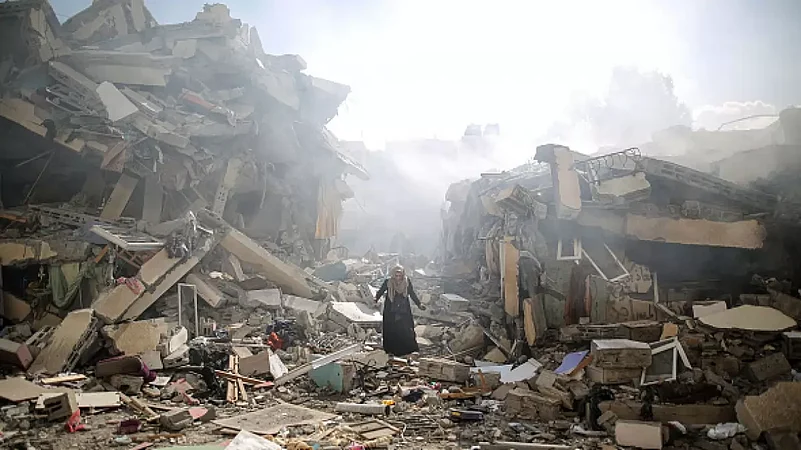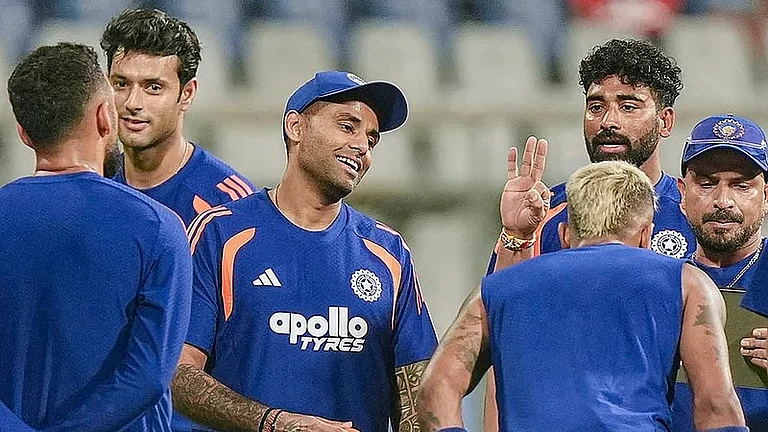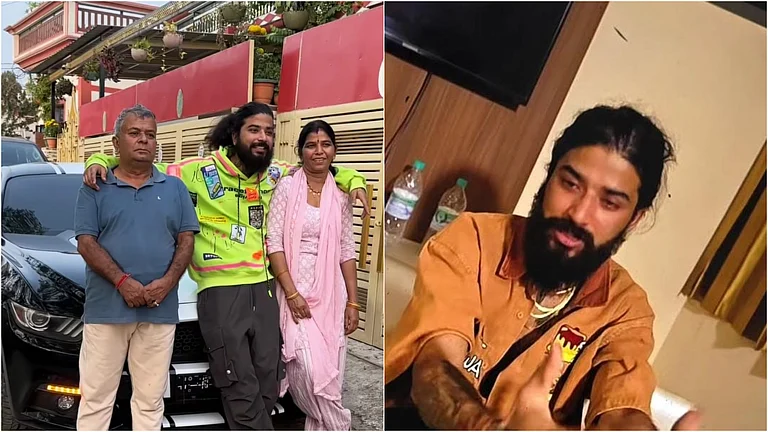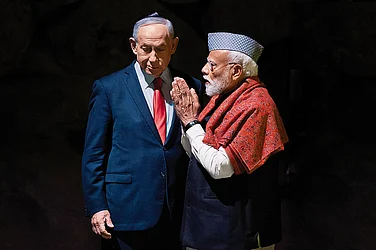A trend has emerged where some content creators, primarily on TikTok, are poking fun at Palestinians and their trepid living conditions amid Israel's escalated bombardment in Gaza, where civilians are suffering from water, food, fuel, electricity and medicine shortages due to the continuous siege and air strikes on them.
While the heart-wrenching scenes of Palestinian fathers holding their lifeless children, mothers in tears, and people desperately searching for signs of life amidst the rubble have deeply moved many who empathise with their anguish, there exists another set of visuals on social media that starkly lacks these emotions, instead, trivialising the situation and making a laughingstock of it.
Numerous videos have surfaced on TikTok and Instagram, depicting Israeli settlers enjoying their comfort and luxury in stark contrast to the mass destruction and suffering endured by Palestinians in the war-torn Gaza Strip. These videos are intentionally crafted to inject humor into an extremely dire situation, overtly resorting to making light of the hardships thousands of Palestinians continue to face.
Individuals donning keffiyeh (the traditional headdress of many Middle Eastern countries, including Gaza), wearing makeup to simulate bruises and injuries, blackening their teeth and people carrying dolls swaddled in white cloth – these are some of the visuals in these Tiktok videos that extend way beyond simple humour. They serve as painful reminders of the humiliation endured by Palestinians, especially amid the ongoing conflict. These are targeted attacks.
In some videos, creators are seen flicking lights on and off to mimic the power blackouts in Gaza, some are sprinkling talcum powder to make it seem like they are covered in dust from the debris of bombed buildings. Some videos show creators drinking (and wasting) water, dancing in the shower or flaunting air conditioners to boast about the comfort of basic necessities like water and electricity. In one video, an influencer cradled a fruit with a sad face drawn on it, mocking Palestinian women running for their lives carrying their infants in their arms.
Children At The Centre Of Mockery
According to The Defense for Children International – Palestine (DCIP), a Palestinian NGO, one child is killed every 15 minutes in Israel’s bombings of Gaza. Of the 8,000 deaths in the enclave in the last three weeks, more than 3,000 are children. This is higher than annual death tolls of children in any other armed conflict around the world since 2019.
Yet, an alarming number of these videos involve children who are seen jeering at Palestinians without even understanding its implications. Many Israeli parents are dressing up their children for social media to mimic the viral visuals of Palestinian children in a way as if to imply that it is a made-up story.
How Can Human Suffering Ever Be A Joke?
Humour is often employed as a means to rekindle social engagement and evoke positivity during times of grief and devastation. However, when addressing an enduring and deeply complex issue such as the Israel-Palestine conflict, the use of humour is perplexing, particularly due to its tendency to veer into mockery.
Such instances also point towards a behaviour that perpetuates stereotypes and exacerbates the deep-rooted tensions, with elements of racism in the already complex dynamics. As a result, it undermines the efforts for empathy between the two communities.
It must be noted that the mockery of Palestinians is happening in more ways than TikTok videos -- there are daily online banters, hate comments, and casual jokes taking a dig at Palestinians or Arabs in general.
There is also another apparent trend on TikTok where content creators are running live games discussing which side -- Israel or Palestine -- will win. Abbie Richards, a misinformation researcher, posted on X talking about how TikTok was profiting over these live games.
No Ban For Mockery
There are reports that Meta is shadow-banning content related to the sufferings of Palestinians. Last week, Meta removed @eye.on.palestine – an account with more than 6 million followers – for consistently presenting the ground reality in Gaza. Others have complained that their accounts have been flagged, videos and posts on Instagram and Snapchat have been taken down because they included information on the ground situation in Palestine. There are also claims suggesting that Meta’s algorithm was specifically making content on Palestine or Gaza rank lower.
Meanwhile, Meta has taken no step to restrict the videos of the mockery of Palestinians, which draws a similarity to instances of hate against queer people, trans people and Black people. These do not fall under the violations of the company's “community guidelines” yet.
For the world outside, social media has emerged as an extensive medium to witness the ongoing humanitarian crisis in Gaza. Its role transcends that of a mere watchdog; it is a medium for shaping public narratives and a valuable tool for sharing information that might otherwise remain inaccessible. However, the disproportionate erasure of voices advocating for Palestine from social media platforms sets a dangerous pattern for them.
At the time of writing, a deluge of Israeli airstrikes on Gaza’s biggest refugee camp added to the devastation for Palestinian civilians. Many cities in Gaza now lie in ruins, and the human cost has been immense, with over 8,000 people killed, including more than 3,000 children, according to the data provided by Gaza’s health department. Many activists and humanitarian officials have called it a genocide. In Israel, the death toll is approximately 1,400, with the majority of casualties resulting from the initial attack by Hamas.






















